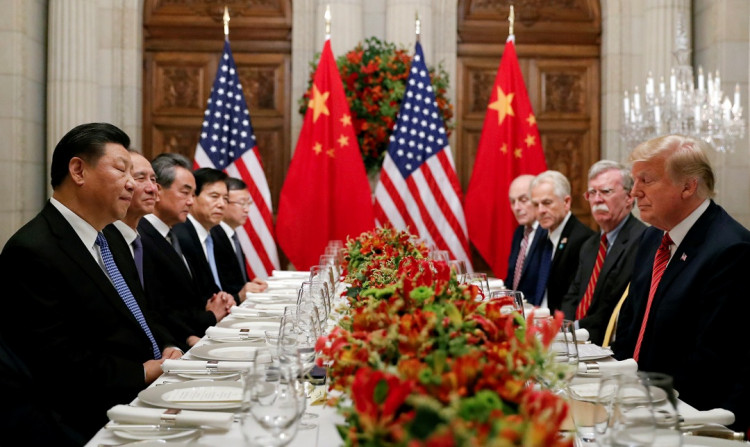Beijing warned Monday that it would retaliate against any country cooperating with U.S. efforts to isolate China, as tensions between the world's two largest economies intensify. The Chinese Ministry of Commerce, responding to reports that the Trump administration is seeking trade concessions from allies in exchange for tariff exemptions, said, "China firmly opposes any party reaching a deal at the expense of China's interests. If this happens, China will not accept it and will resolutely take reciprocal countermeasures."
The remarks came as President Donald Trump's administration reportedly plans to leverage ongoing trade negotiations to build a coalition that would economically quarantine Beijing. According to The Wall Street Journal, the White House aims to extract commitments from trade partners to reject Chinese goods, bar Chinese firms from establishing operations to circumvent U.S. tariffs, and resist importing low-cost Chinese industrial products.
Trump earlier this month raised U.S. tariffs on Chinese imports to 145% while granting a temporary 90-day suspension of broader tariffs for other countries. China responded by raising duties on American goods to 125% and began escalating punitive measures targeting U.S. firms. Beijing restricted Hollywood movie imports and returned at least two Boeing 737 MAX jets intended for Chinese airlines to the U.S.
The Chinese Commerce Ministry cautioned that "appeasement does not bring peace, and compromise does not earn respect," adding, "Seeking temporary self-interest at the expense of others... - in exchange for so-called exemptions - is like asking a tiger for its skin."
Xi Jinping, attempting to counter U.S. pressure with a charm offensive, visited Vietnam, Malaysia, and Cambodia last week, signing new trade agreements and calling for resistance to "unilateral bullying." The three nations had previously been hit by tariffs of up to 49% under Trump's "reciprocal" tariff regime before the temporary pause.
Meanwhile, Beijing has expanded diplomatic outreach to Japan, South Korea, and the EU, promoting economic cooperation while maintaining military pressure in contested regions. Chinese war games were recently conducted near Australia, Taiwan, and in the South China Sea.
Elizabeth Economy, a senior fellow at Stanford's Hoover Institution, noted the limitations of Beijing's appeal. "For many of these countries, even when China is a larger trading partner, the United States is often a much larger export market," she said.
Despite efforts to project itself as a reliable trading partner, China's record on coercive economic practices and regional military assertiveness has raised concerns among Asian and European leaders. Economy emphasized that "they're not stepping back in terms of their security ambitions even as they're trying to promote themselves as a stabilizing economic force."
Justin Yifu Lin, dean of the Institute of New Structural Economics at Peking University, urged nations to unite against what he termed "unreasonable and illogical" U.S. trade behavior. "I'm confident that unreasonable and illogical things can't last that long," Lin said.






